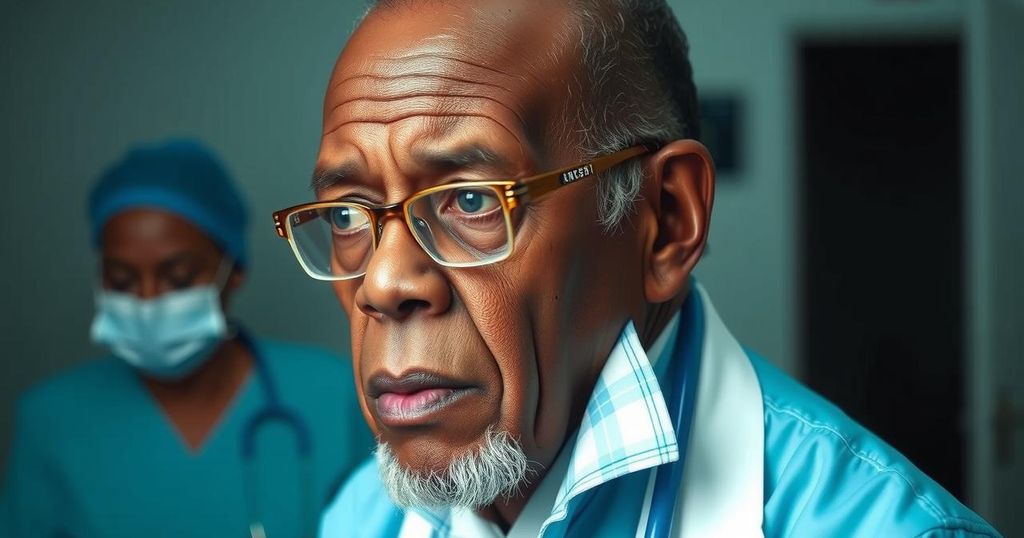The DRC is grappling with an undiagnosed illness affecting 406 individuals, with 31 deaths reported, primarily among children. The outbreak, concentrated in the difficult-to-access Panzi district, presents flu-like symptoms. Experts indicate a need for careful investigation into known pathogens rather than labeling this as a ‘Disease X’ event. The response is hampered by limited healthcare infrastructure and testing capabilities, prompting significant involvement from international health organizations to manage the crisis.
In the Democratic Republic of the Congo (DRC), an undiagnosed illness has led to 406 reported cases, predominantly affecting severely malnourished individuals, with a reported 31 fatalities, primarily among children. The origins of this disease, which presents flu-like symptoms including fever, headache, cough, and anemia, remain elusive, as health officials have not yet confirmed whether it is caused by a viral or bacterial agent. The outbreak is concentrated in the remote Panzi district of Kwango province, which poses logistical challenges for health responses due to its inaccessibility and limited healthcare infrastructure.
Experts suggest that the outbreak may not originate from an unknown pathogen but could be linked to already recognized illnesses. Common infectious diseases such as acute pneumonia, influenza, COVID-19, and malaria are being investigated as potential causes. The World Health Organization (WHO) acknowledges that the condition could also stem from a combination of infections.
Due to inadequate testing facilities, health authorities face significant barriers in identifying the responsible pathogens. Most local laboratories can only screen for commonplace diseases, necessitating that samples requiring advanced diagnostic methods, such as gene sequencing, be transported to specialized locations for accurate analysis. This situation has prompted international health agencies, including the Africa CDC, to deploy teams to assist in ongoing investigations and implement disease control measures. These teams aim to provide timely diagnosis and treatment while assessing the transmission dynamics in affected communities.
Furthermore, local authorities have begun implementing preventive strategies, including limiting movement in the area to curb further spread. Experts emphasize the urgency of identifying the disease’s cause to establish effective treatment protocols and control measures. The complexity of the DRC’s healthcare environment coupled with the ongoing challenges presented by this outbreak underscores the critical need for enhanced disease surveillance and rapid response capabilities in the region.
The current health crisis in the DRC centers around an undiagnosed illness that has surfaced in the Panzi district, with reports indicating a substantial number of cases and fatalities among affected populations. This situation has raised alarms due to its potential links with malnutrition, as many cases involve individuals in vulnerable conditions. The lack of clear diagnostic capabilities complicates responses, making it imperative for local and international health organizations to collaborate closely. This episode also highlights broader issues surrounding healthcare access and disease management in remote regions of Africa, where infrastructure limitations can hinder timely and effective responses to health emergencies.
In summary, the undiagnosed illness affecting the DRC reveals critical healthcare challenges, including inadequate testing capabilities and logistical hurdles associated with remote disease outbreaks. Health authorities and international allies must address these barriers to identify the illness’s causes rapidly and implement appropriate health interventions. Continuous monitoring and effective communication with local communities will be essential in managing this health crisis and preventing its escalation.
Original Source: eastleighvoice.co.ke






